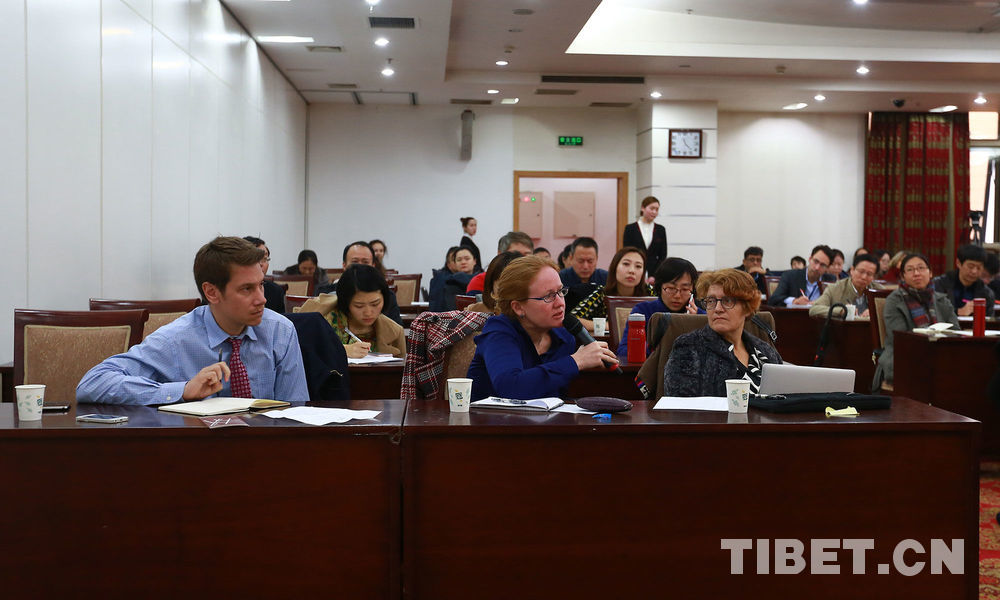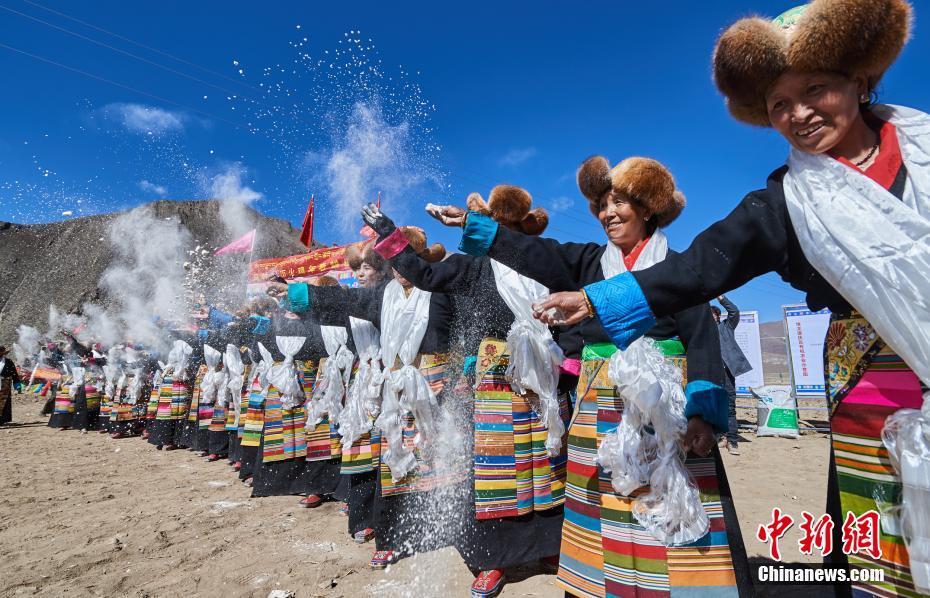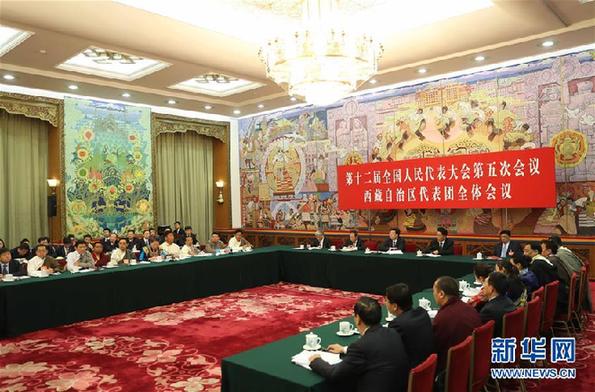"Tibetan cultural protection" news salon takes place in Beijing

A journalist is asking questions in a "Tibetan cultural protection" news salon held at the China Tibetology Research Center on March 23, with dozens of domestic and foreign journalists as well as foreign diplomats present discussing Tibetan culture with nine experts and scholars at the centre. [Photo/China Tibet Online]
A "Tibetan cultural protection" news salon was held at the China Tibetology Research Center on March 23, with dozens of domestic and foreign journalists as well as foreign diplomats present discussing Tibetan culture with nine experts and scholars at the centre. After the discussion, journalists and diplomats visited the Tibetan Cultural Museum.
Zheng Dui, director of the Research Center said that the central government has always attached great importance to the protection of traditional Tibetan culture, and the Tibetology Research Center has done lot of work in this regards, such as publishing the world's most complete version of Tripitaka, which took as long as 18 years and the number of experts and scholars involved reached more than 120 at its peak. After the results were released, it played a pivotal role in developing traditional Buddhist culture, and received praise from academic and religious circles at home and abroad.
What's more, more than 90 experts and scholars spent a total of 14 years to complete the 900-million-word General History of Tibet, which was published last year. The book uses large numbers of historical facts, plenty of historical data and rigorous analysis to prove that Tibet has been an inseparable part of China since ancient times, and clear up some of the false statement over Tibet's history.
In answering questions from a reporter with Voice of America regarding the Dalai Lama's "middle road", Lian Xiangmin, a professor in the history of modern Tibet said that the Dalai Lama's "middle road" is essentially no different to his previous plots to separate Tibet from China. The central government is consistent in its stance towards the Dalai Lama: he must abandon his separatist position, stop separatist activities, openly acknowledge that Tibet is an inseparable part of China, acknowledge that Taiwan is an inseparable part of China and acknowledge that the government of the People's Republic of China is the sole legal representative of China. However, since the 1980s, the Dalai Lama has always been opposed to central government's policies and his plots to divide China have never stopped.
Over 80 people attended the "news salon", including reporters from a total of 42 domestic and foreign media and diplomats from 12 different embassies in China, including the Unites States, Britain, France, Japan, India, Nepal and others.
Your Comment
Name E-mailRelated News
-
;
-
-

-
Tibet holds traditional spring ploughing ceremony
Spring ploughing ceremony is usually held in Tibet to pray for favorable weather and a good harvest
-
-
-

-
Over 1,700 ethnic, religious activities peacefully held in Tibet
The regional government in Tibet hailed social stability and religious harnomy in the autonomous region, citing over 1,700 ethnic and religious activities held there in a peaceful and orderly manner, according to a report released Friday.
-
-
-

-
Cultural protection enhanced for small ethnic minorities
"I am proud my home village has preserved its traditional style," said Tashi Yangjen, the only deputy to the 12th National People's Congress (NPC) from the Luoba ethnic group.
-
Based in Lhasa, Tibet Vista is a Tibet travel agency that specialized in Tibet permit, and Tibet tours for both private and group travelers at a local price!
•4 Days Lhasa City Group Tour from USD 460 •8 Days Everest Base Camp Group Tour from USD 850 •15 Days Mt.Kailash Group Tour from USD 1780 •2016 Tibet Train Tours from Beijing, Shanghai, Chengdu, Xining,etc










